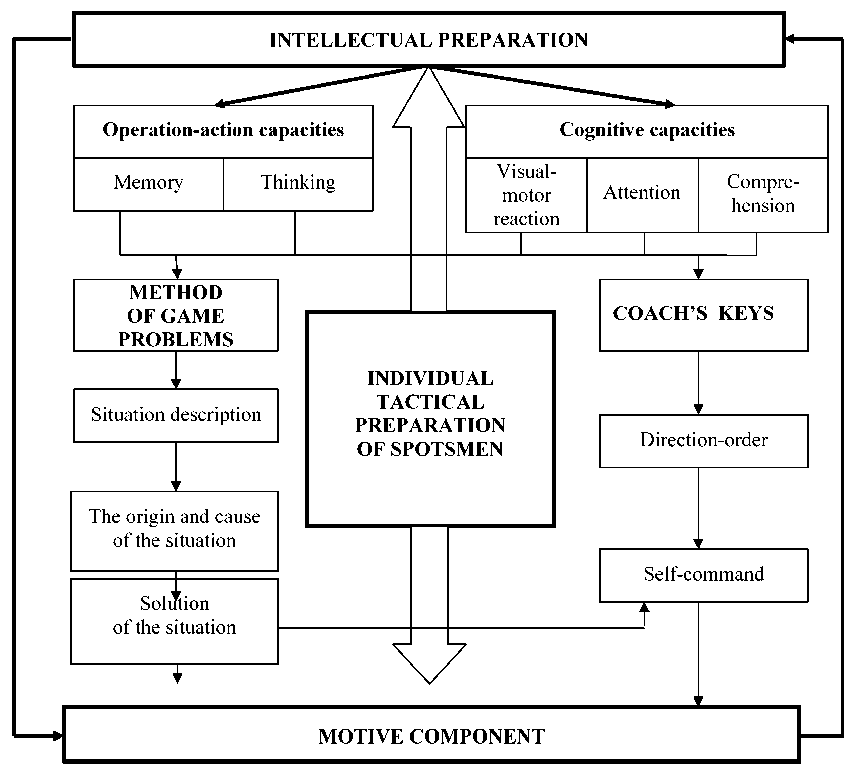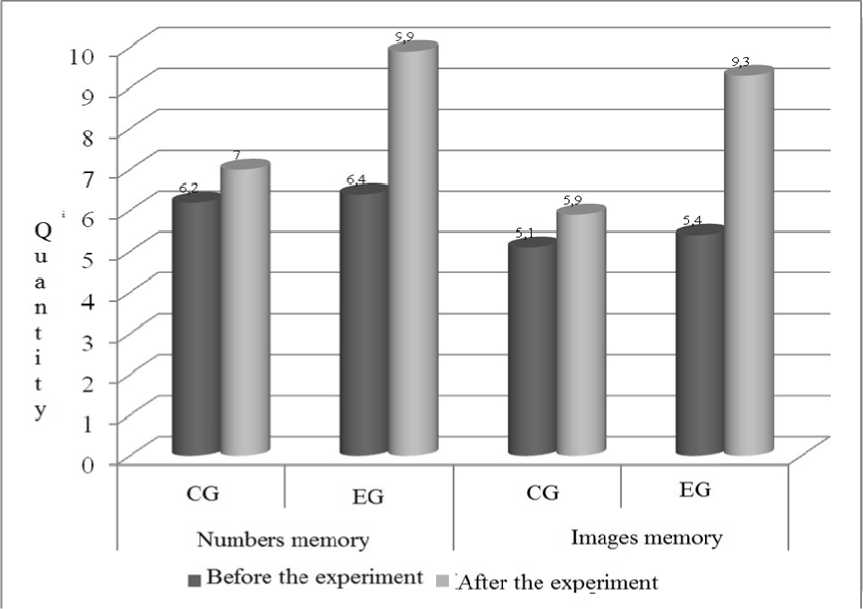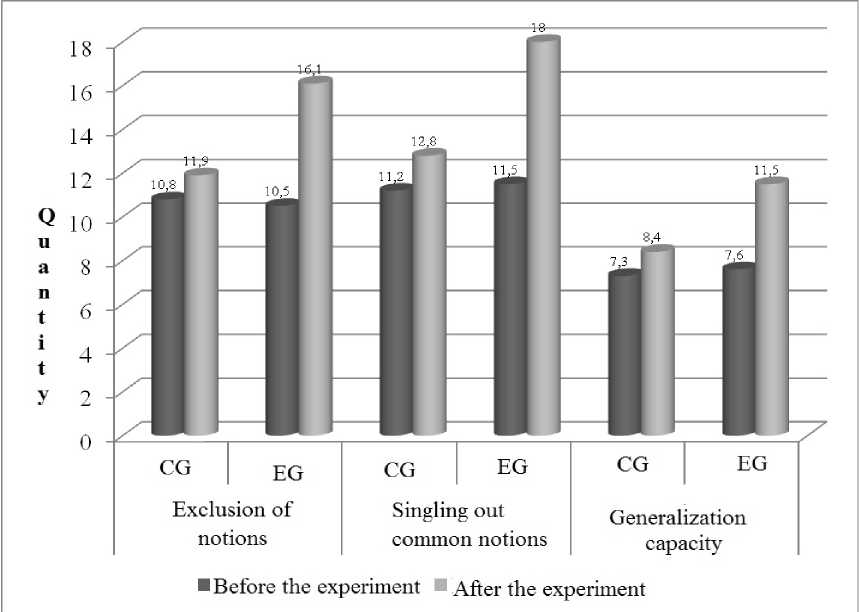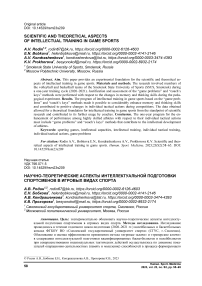Scientific and theoretical aspects of intellectual training in game sports
Автор: Rodin A.V., Bobkova E.N., Kondrashenkova A.V., Prokhorova K.V.
Журнал: Человек. Спорт. Медицина @hsm-susu
Статья в выпуске: S2 т.23, 2023 года.
Бесплатный доступ
Aim. This paper provides an experimental foundation for the scientific and theoretical aspects of intellectual training in game sports.
Sporting games, intellectual capacities, intellectual training, individual tactical training, individual tactical actions, game problems
Короткий адрес: https://sciup.org/147242152
IDR: 147242152 | УДК: 796.071.5 | DOI: 10.14529/hsm23s209
Текст научной статьи Scientific and theoretical aspects of intellectual training in game sports
А.В. Родин1,2, ,
А.В. Кондрашенкова1, ,
К.В. Прохорова1, , 1 Смоленский государственный университет спорта, Смоленск, Россия 2 Московский политехнический университет, Москва, Россия
Introduction. Development of sporting games follows the way of search for most optimal concepts and approaches, conditioning scientific and theoretical foundation of a system aimed at perfection of the sporting mastership of the player. The modern highly qualified player is not only an athlete possessing an efficient movement potential but also a sporting personality characterized by a high level of theoretical knowledge about game activity. A capacity of an efficient application of theoretical knowledge to the process of game activity while confronting a rival due to operation-action abilities lays the basis of sportsmen’s intellectual performance [4, 7].
An analysis of special scientific and methodological literature [2, 3, 5] and practices of recent years testify to the fact that specialists pay considerable attention to the problems of intellectual preparation of sportsmen in various sports, but game-based sports are short of a good scientific and theoretical foundation of solving such problems. In particular, only a limited scope of intellectual players’ readiness is under consideration basically boiling down to the development of psycho-physiological capacities of sportsmen.
Modern tendencies of game activity are primarily linked to an increase of game speed and athletic stamina of players. High demands claimed by the individual tactical mastery of sportsmen testify that the contemporary player must take correct decisions in the process of a concrete game situation on the basis of the present theoretical experience [1, 6]. In this context, a low degree of elaboration of the problem under consideration testifies to the urgency and timeliness the raised question for conducting an expe- rimental research aimed at grounding of the scientific and theoretical aspects of an intellectual sportsmen’s training for game activity.
Materials and methods. Scientific-theoretical justification and effectiveness assessment of intellectual training of sportsmen for games were carried out by means of influencing operationaction abilities of sportsmen (memory and thinking) with the usage “game problems” and “coach’s keys” method. With this aim in mind we have carried a forming pedagogical experiment on the basis basketball and volleyball clubs on the premises of the Federal State Budget Educational Establishment of Higher Learning “Smolensk State University of Sports” (SSUS, Smolensk). As a result of research two groups were formed in each team: the control group (n = 12 people) and the experimental group (n = 12 people).
The content of the forming pedagogical experiment consisted in introduction of a specially elaborated technology aimed at the development of highly qualified sportsmen’s intellectual abilities by means of the “game problems” and “coach’s keys” method which supplement the movement component of an individual tactical training. In the control group the improvement of individual tactical actions was achieved in the framework the classical scheme where the main place belonged to standard exercises entering the training conditions.
The essence of the “game problems” method consisted in interactive board demonstration of various game situations implying various techniques in the conditions of sporting rivalry. Sportsmen were offered to find a way out the concrete situation and formulate the correct solution de- scribing it in a special protocol. As a sum total, 36 training sessions have been conducted to perfect the intellectual capacities of the qualified players.
The “coach’s keys” is a methodological technique used in the process of making exercises aimed at improvement of individual tactical actions. Its essence consisted in the hot-issue of the coach’s directions and commands in the process of a concrete tactical movement acting against the sporting rival. This methodological techniques allow for the player’s self-regulation of the individual tactical actions with the help of self-commands and orders to correct certain mistakes in the movement task.
The foundation and efficiency assessment of the scientific-theoretical aspects of the sportsmen’s intellectual preparation for games was effected by tracing the indicators’ dynamics of operation-action abilities (memory and thinking) as well as that of result-effective solution of various tactical tasks in the control and experi- mental groups throughout the total duration of the research.
Results and discussion. Intellectual capacities of qualified basketball and volleyball players are determined by operational, motive and cognitive possibilities of the players. In the process of materialization of their individual tactical actions basketball and volleyball players have to actively resort to their memory and intellect reserves in order to be able to determine, to compare and to work out correct solutions for materializing a motive action in the concrete game situation.
The intellectual preparation including the “game problems” and “coach’s keys” method (Fig. 1) in the framework of individual qualified basketball and volleyball players’ tactical actions perfection contributes to:
– obtaining of a more objective assessment of the player’s professional and pedagogical expertise of the individual tactical training through participation in the concrete game situation;

Fig. 1. Structure of sportsmen’s intellectual training for game sports on the basis of the “game problems” and “coach’s keys” method
-
– an extension of one’s personal experience on the basis of “test of strength”;
-
– an active entry into an objective, professional dialogue with specialists;
-
– stimulation of a motivational sphere to master professional skills;
-
– extension of analytical thinking capacities in a solution of a concrete game situation.
The present research demonstrated that before the beginning of the forming pedagogical experiment the qualified players in the Control group (CG) and in the Experimental group (EG) didn’t demonstrate any significant differences of the memory and thinking indicators thus confirming homogeneity of the groups under consideration (p > 0.05; Figs. 2, 3). All the indicators of memory and thinking considered for qualified players in CG and EG were assessed as “medium” or “low level”.
The usage of “game problems” and “coach’s keys” methods in the process of sportsmen’s intellectual drill has made it possible to considerably improve short-term memory indicators – by 3.5 and 3.9 points (p < 0.05) with EG players during the experiment what told positively on the effectiveness of individual tactical actions in the process of competitions. It was found out that
CG players exhibited a considerable growth of memory indicators by 0.8 points (p > 0.05) determined by the method of “Images and numbers memory”. Growth rate of memory indicators with EG qualified players within the forming experiment equaled 54.7 and 72.2 per cent, while with CG players those indicators equaled 12.9 and 15.7 per cent, respectively. By the end of the forming pedagogical experiment with the EG qualified players memory development indicators corresponded to the “high level”, while in the CG group they corresponded to the “medium level”.
The usage of methods named “Exclusion of notions”, “Singling out of common notions” and “Generalization capacities” for assessment of intellectual operations of generalization, analysis and classification made it possible to draw a conclusion that qualified sportsmen of CG and EG exhibited “low” and “medium” indicators at the start of the forming experiment (Fig. 3). The implementation of the intellectual training program on the basis of “game problems” and “coach’s keys” methods testified to the growth of the abovementioned indicators of thinking capacities during the forming pedagogical experiment with the EG qualified players to “high level”, while they stayed at “medium level” with the CG players.

Fig. 2. Dynamics of qualified players operation-action (memory) capacities in the process of the forming pedagogical experiment

Fig. 3. Dynamics of intellectual operations of generalization, analysis and classification with qualified players in the process of the forming pedagogical experiment
As a result of the experiment the EG players’ thinking indicators, assessed by: the “Exclusion of notions” method, have grown by 5.6 correct answers; the “Singling out common notions” – by 6.5 correct answers and the “Generalization capacity” - by 1.1 correct answer (p < 0.05; Fig. 3), growth rate being 53.3; 56.5 and 51.3 per cent, respectively. The corresponding control group indicators have grown insignificantly (p > 0.05), and the growth rate of indicator values was 10.2; 14.3 and 15.1 per cent, respectively.
The indicators of inductive, abstract and theoretical thinking investigated by the “Possession of information”, “Logical thinking” and “Regularity finding capacity” methods at the start of the forming pedagogical experiment with the CG and EG players did not differ significantly (p > 0.05) and corresponded to the “medium” level (Fig. 4).
Usage of “game problems” and “coach’s keys” methods in the process of intellectual training has positively influenced perfection of qualified EG players’ individual tactical actions testified by the objective dynamics of inductive, abstract and theoretical thinking indicators. Exhibiting growth by 3.8; 4.2 and 5.1 correct answers, respectively (p < 0.05; Fig. 4). During the forming pedagogical experiment the EG players have shown the results growth rate by 59.4; 79.2 and 94.4 per cent what was considerably higher than with the sportsmen of CG. After the experiment the qualified EG players were characterized with the “high” level and they objectively surpassed their CG counterparts with their inductive, abstract and theoretical thinking indicators (p < 0.05).
At the beginning of the forming pedagogical experiment the qualified CG and EG players exhibited approximately equal number (47.5 and 50.8 per cent respectively) of correct answers to offered game problems. As a result of the elaboration and introduction of intellectual preparation, which served as an accompanying component of the individual tactical training of the qualified EG players the number of correct answers in the process of the experiment rose by 40.8 per cent. In the control group (CG) the results improved only by 9.7 percent (Fig. 5).
Our research has proved that within the time limits of the forming pedagogical experiment EG sportsmen have increased the coefficient of useful game by 9.8 points, while this increase with the CG players was only 2.5 points (Fig. 5). Besides, the objective indicators’ values for the groups under research are considerably different (p < 0.05).

Fig. 4. Qualified players’ inductive, abstract and theoretical thinking dynamics in the process of the forming pedagogical experiment

game, points
Fig. 5. Dynamics of game problems solution and qualified players’ coefficient of useful game in the process of the forming pedagogical experiment
Conclusions. The present research’s results allowed for a proof of the hypotheses postulated at the start of the experiment: high values of qualified basketball and volleyball players’ intellectual abilities indicators contribute to maximal effectiveness of the players’ individual tactical actions in the process of competitive activity. The results obtained testify to the fact that scientific-theoretical foundations of qualified players’ intellectual training on the basis of “game problems” and “coach’s keys” methods constitute an effective approach, which must be employed by a broad circle of specialists in the training work with teams aimed at perfection of individual tactical actions.
Список литературы Scientific and theoretical aspects of intellectual training in game sports
- Бабушкин, Г.Д. Интеллектуально-психологическая подготовка спортсмена: моногр. / Г.Д. Бабушкин, К.В. Диких. - Саратов: Вузов. образование, 2020. - 212 c. DOI: 10.23682/89233 EDN: DCVZOC
- Грец, Г.Н. Профессиональный интеллект и физическая подготовленность футбольных арбитров как условия реализации возможностей диагональной системы судейства / Г.Н. Грец, А.Д. Будогосский, Е.А. Турбин // Ученые записки ун-та им. П.Ф. Лесгафта. - 2018. - № 8 (162). - С. 41-46. EDN: XZTPID
- Назаренко, Л.Д. Совершенствование системы спортивной подготовки на основе развития интеллектуальных способностей спортсмена / Л.Д. Назаренко // Теория и практика физ. культуры. - 2014. - № 9. - С. 66-69. EDN: SGHLEX
- Павлова, Н.В. Оценка теоретической подготовленности хоккеистов / Н.В. Павлова, E.M. Николаев // Вопросы функцион. подготовки в спорте высш. достижений. - 2017. - № 1. - С. 86-92.
- Родин, А.В. Информационное обеспечение технико-тактической подготовки спортсменов в игровых видах спорта / А.В. Родин // Теория и практика физ. культуры. - 2020. - № 2. - С. 56.
- Родин, А.В. Эффективность методических приемов в процессе интеллектуальной подготовки спортсменов в игровых видах спорта / А.В. Родин // Ученые записки ун-та им. П.Ф. Лесгафта. - 2018. - № 2 (156). - С. 195-197. EDN: YRUSHP
- Воронов, Ю.С. Интеллектуальная подготовка в тренировочном процессе по спортивному ориентированию / Ю.С. Воронов, Д.С. Якушев // Физическая культура: воспитание, образование, тренировка. - 2020. - № 6. - С. 79. EDN: UEVKGJ


